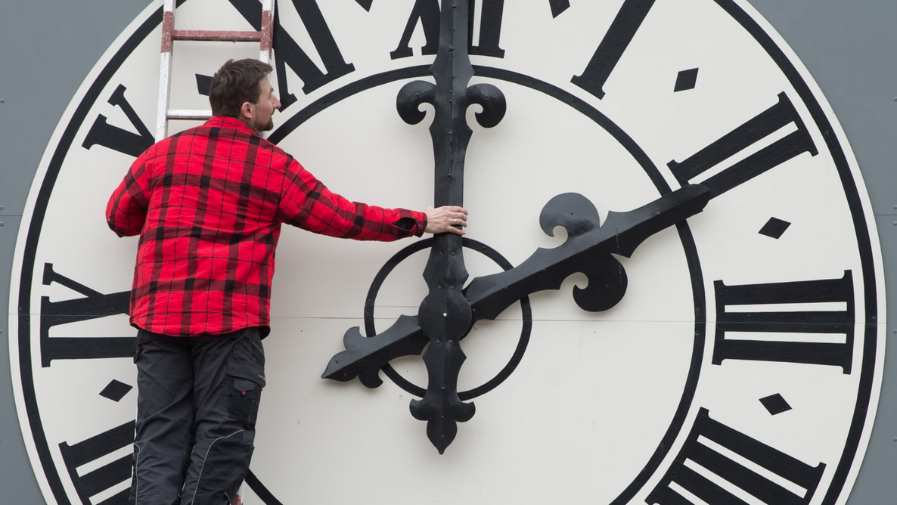Supporting People with Dementia When the Clocks Change
As the clocks go back on Sunday 26th October, most of us will simply adjust to the extra hour in bed and carry on with our daily routines. But for people living with dementia, this seemingly small change can create significant confusion, anxiety and distress.
At Bluebird Care, around 40% of our customers are living with dementia at various stages, and we understand just how challenging seasonal transitions like the clock change can be. That's why our specially trained carers are here to provide the support and reassurance your loved ones need during this time.
Why Clock Changes Affect People with Dementia
For someone living with dementia, changing the clocks can be far more than a minor inconvenience. As the Alzheimer's Society explains, the time shift can be deeply disorienting, making it difficult to differentiate between morning and evening. When it becomes dark earlier, someone with dementia may struggle to tell whether it's 6am or 6pm, which disrupts their internal body clock and can significantly impact their sleep patterns.
Poor sleep can lead to a cascade of difficulties. When someone with dementia becomes overtired, they may experience low mood, reduced clarity of thinking, irritability and increased distress. This affects not only their wellbeing but also the quality of life for family members and carers supporting them.
How Bluebird Care Can Help
Our dementia-trained carers understand these challenges and know how to provide compassionate, person-centred support. Here are some practical strategies we use to help people with dementia cope with the clock change:
Prepare in Advance
Rather than making an abrupt change on Sunday morning, we recommend gradually adjusting routines on Saturday evening. Having dinner and going to bed an hour later means your loved one can still get their usual amount of sleep and wake at their regular time on Sunday. This way, the disruption is limited to just one evening rather than affecting an entire day.
Maintain Consistent Routines
Routine is incredibly important for people with dementia. Having regular activities at the same time each day helps regulate a disrupted body clock and provides a sense of security and familiarity. Simple routines like going for a walk after breakfast, having lunch at the same time, or watching a favourite programme in the afternoon can help someone with dementia make sense of the passing time.
Our Bluebird Care team works closely with families to maintain these important routines, ensuring consistency even when circumstances change.
Maximise Daylight Exposure
Natural light plays a crucial role in regulating our sleep-wake cycles. Getting outside for some gentle exercise and fresh air during daylight hours can help someone with dementia feel naturally sleepier in the evening, making it easier to settle at their usual bedtime.
For those who are less mobile or unable to go outside, sitting near a window with plenty of natural light in the morning, or using a bright lamp or lightbox, can provide similar benefits.
Consider Helpful Tools
Specially designed clocks can make a real difference. Auto-setting clocks that adjust automatically to the correct time remove the confusion of manual changes. Day and night clocks, which display visual symbols alongside the time, can help people with dementia distinguish between morning and evening more easily.
The Bluebird Care Difference
Supporting someone with dementia requires patience, understanding and specialist knowledge. Our carers receive comprehensive dementia training that equips them to recognise and respond to the unique needs of each individual. We don't just provide practical care; we offer emotional support, companionship and dignity.
Whether your loved one needs help maintaining their daily routine during the clock change, reassurance during periods of confusion, or simply a familiar face to provide comfort during unsettling times, Bluebird Care is here to help.
If you're concerned about how the clock change might affect someone you care for, or if you'd like to learn more about our dementia support services, please get in touch with your local Bluebird Care team. We're here to ensure that people living with dementia, and their families, receive the compassionate, expert care they deserve.
Remember: small changes in routine can have a big impact on someone with dementia. With the right support and preparation, we can help make transitions like the clock change much smoother for everyone involved.
Explore our full range of Dementia services on our website.






